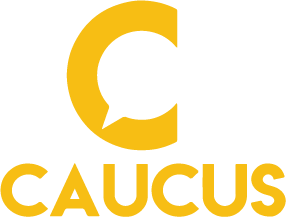 This article was originally published with The Manila Times on July 26, 2018.
This article was originally published with The Manila Times on July 26, 2018.
Did you know that Filipinos are probably the only people that test a lightbulb when buying one in a hardware or supermarket? Did you know that we’re probably the only country where a cashier transfers the trouble of giving change to a paying customer by asking him or her for spare coins? In my travels in different countries and having worked in the region, I observed these and other amusing practices among Filipinos that normally aren’t present in other nationalities.
What explains such idiosyncrasies that may sometimes be funny, at times resulting in good, but otherwise may be destructive? Human behavior is a complex subject matter that has baffled scholars, governments, and nations since time immemorial. This is why some countries are more progressive than others and why only a few people are extremely wealthy.
One very obvious behavioral shift we see among Filipinos is when we travel. On the home front, Filipinos don’t show much discipline especially in the airport or on the roads while driving. And yet, the same people will exude the very opposite behavior when in an international airport or when driving overseas. One would wonder why can we be such law abiding citizens somewhere else except our own country? Why does our behavior change every time we step on foreign soil? What does this tell about us?
Behavior, as defined by Merriam-Webster, is the aggregate of responses to internal and external stimuli. The way individuals respond to a situation is influenced by several factors namely abilities, gender, race and culture, attribution, perception, and attitude. Interestingly, behavior can form part of our innate set points or may be further modified or learned from the environment.
Let us take one factor for example. If behavior can be influenced by abilities, how can we take advantage of this so we can build better habits and to a certain extent, develop better communities?
Abilities are defined as the traits that a person learns externally as well as those that a person is gifted with by birth. There are three classifications of abilities: (a) intellectual (b) physical (c) self awareness.
In a report published by the World Economic Forum, its Global Future Council on Behavioral Sciences said, “the discipline is helping to break new ground in multiple areas, from healthcare and education to social inclusion and consumer finance.” Furthermore, the report highlights that “education is an area where traditional approaches have held sway for a long time — and where increasing effectiveness is widely recognized as key to making the most of the 4IR, as the pace of technological change will lead to rapid shifts in the skills required. Behavioral scientists are looking now at possible ways to help students learn and teachers teach more effectively.”
Given that we are in the fourth Industrial Revolution, and there’s a profound impact in the way we live and interact with people around us, it’s imperative to enable our citizenry, especially the youth, to develop abilities by transforming how they’re educated and knowing the tools available for them to access. I mentioned in previous articles that while critical thinking is one ability much needed to be developed, we also need to ensure the content our kids have access to is something that can enable them to learn and think outside the box, ideally. Locally, Philippine Business for Education (PBed) recently held a press briefing to share on the need to increase our country’s competitiveness index through education. Our neighbors in the region have already surpassed us in terms of progress, development and ability in many industries. There’s a need for a strategic collaboration among public and private sectors and NGOs to ensure our roadmap to progress is achievable, realistic and doable in a timely manner.
While we work on harnessing the education available to our youth today, our goal must also be to align such abilities to the behavior we desire our children to have so they may, at some point in their lives, be equipped to build better habits, create better products and eventually develop better communities. This obviously takes more than just classroom training and requires a good exposure on the realities of developing nations and the technologies available.
One analogy I can think of is an organization equipped with all the latest technology tools and platforms available and yet some processes are still done manually. This is because the behavior of the organization isn’t readily geared to adapt to such development, and this is a classic way of saying no matter how technologically advanced the organization is, if the head of a business unit isn’t trained or aligned to embrace such capability, then the investment might as well be considered not optimized at all.
It will be interesting to see a national program that can work on the education and behavior components to remain competitive especially in this digital age. On education alone, it would be a good sign if we can find ways how to transform how we learn things while doing away with the rote memorization that has plagued our system since time immemorial. Perhaps at some point in the future we don’t need to be on foreign soil anymore to be good and law abiding citizens.
Kay Calpo Lugtu is the COO of Hungry Workhorse, Co-Founder of Caucus, Inc. and Deputy Director of Global Chamber Manila. Her advocacies include data privacy, financial literacy, and nation-building. The author may be reached at kaycalpolugtu@hotmail.com or, to the more cautious now, at kaycalpolugtu@protonmail.com.
